by Japleen Kaur
22 year old student, Japleen Kaur is currently volunteering at the Singhu Border in Delhi to support the Indian farmers’ protest. These are her observations.
Punjab: India’s Breadbasket
The word “Panjab” is made of two words, “panj” (five) and “aab” (water). It is the “Land of five rivers”. It is the land of maharanis and maharajas. It is the land of Sikhi. Like a continuously flowing river carving its own way and surpassing hurdles to reach its destination, so is the Punjabi spirit. Punjabis live in chardikala (high spirits) and achieve their goals, once determined. The Gurus taught that Sikhs are to neither suppress anybody or be suppressed by any power. The history of Punjab holds testament to this.
With the passing of new farm bills, the fear of shrinking income and rising unmonitored trade has been soaring high among farmers countrywide. Referred to as the country’s “breadbasket”, Punjab contributes immensely to the crop production of India. Many Punjabis are dependent directly or indirectly on agriculture. When the voices of dissenting farmers remained unheard in their own states, farmers initiated the call of, “Dilli Chalo” (Let’s go to Delhi) and came together in large numbers to protest. When they were stopped from going into Delhi, the Delhi borders became the site of their gathering.
Farmers and laborers from various states and backgrounds have been protesting for over three months now. They are spending days and nights in the biting cold and harsh weather of the capital. Under the unwelcoming skies of Delhi, many farmers are residing here with their families.
Visiting the Singhu Border – A Feeling of Camaraderie
Listening to the stories of bravery and valour of the people protesting despite the harsh cold, I knew for sure that I had to visit the Singhu Border. Once I got here, the spirit of people and their unwavering determination deeply moved me. Yesterday was my 9th visit to this site. I go there with my family. Every time I visit, the experience holds me spellbound. The spectrum of people, young and old, starting their day Amrit Vela (early morning), going on relentlessly with their daily chores, extending help to each other, ready for seva all the time, fills my heart with gratitude and praise.
Walking amidst them, a feeling dawned upon us; the farmers’ protest is our protest, in a more direct sense than we had imagined.
The farmers’ protest is our protest, in a more direct sense than we had imagined.
Though protests take place in and around the capital city often, this felt like something different. It is peaceful in real sense. That’s why my father decided to bring us here. We walked for about 3 kilometers and witnessed a great sense of togetherness. It felt like we were surrounded by our family members. There are no boundaries or walls separating us. The road looks vibrant like the pinds (villages) of Punjab and one can see shelters, tents, libraries, gymnasiums, laundry services, portable washrooms, medical and dental camps, free health check ups, and hundreds of stalls of langar. Sevadaars (people doing seva/volunteering) urge people to visit their stall and have langar. They are serving a variety of healthy foods and other essential items.
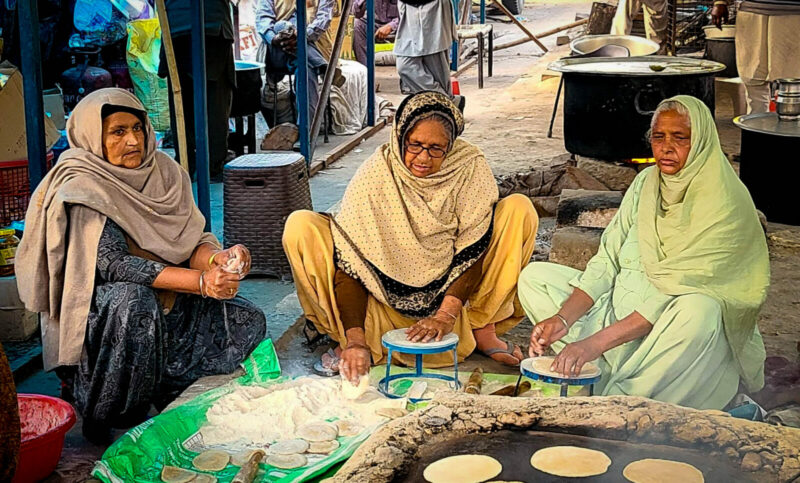
Despite feeling at home and having most of their needs met, women farmers are struggling with sanitation; using the toilets in malls, petrol bunks, sometimes the homes of kind strangers, and secluded spaces to relieve themselves. But, they will not back down from the protest, they say.
Each day more people join the protests. They bring essential items like milk, lassi, and fresh vegetables. All necessities are available here and the border has become a self-sufficient community. The slogans of, “Kisan ekta morcha zindabad (Long live the unity of farmers)” adorn the walls of many semi-permanent shelters. One looks around at the mobile libraries as proof that its ਪੜਦਾ ਪੰਜਾਬ (paṛadā Punjab – “Punjab reads”) instead of ਉੱਡਦਾ ਪੰਜਾਬ (uḍadā Punjab – “Punjab is destroyed”). One can easily spot posters with lines like, “Ghar Ghar Bhago Jamegi (In each house, may a Mai Bhago be born)“.
In each house, may a Mai Bhago be born.
The experience has been enthralling.
Women at the Forefront
Soon, we reached the heart of the site, where people were engaged in seva of preparing langar – chopping vegetables, cooking meals, and serving the community. We sat in a circle of women making rotis. “What brings you here?” I asked them. “We have come to perform seva,” said Gurbhachan Kaur, age 56, who hails from Moga, Punjab. “Langar seva continues day and night. Everyone is welcome to have a meal here,” she said while flipping roti over the tawa (stove).
While other older women are seen handling accounts or taking care of makeshift homes, young women are seen managing stage related activities. “How many people are here at this protest?” I was intrigued by the atmosphere around me. “It’s difficult to keep a count. More people are joining us each day,” replied one woman pointing in the direction of the endless trail of trolleys and tractors.
When I asked about the average age of women at the protest, Nirmal Kaur replied, “Women from the age of 5 to 95 are here.” Nirmal Kaur has come here with other women of her district, Barnala, Punjab. “A lady has come with her 6 month old baby,” she informed me. Despite the unforgiving weather and numerous other challenges, they have bravely shoved away the comforts of home. “We don’t feel tired, neither cold wind nor work exhausts us.” To this Gurdeep Kaur, age 29 and Phd in Punjabi Literature, added, “When our feet are tired of walking, we start walking with our mastishq (mind).” Surpassing the barrier of age, caste, and class, they are here, firm in their resolution and high in their spirits.
To Balbir Kaur, age 65, who was sitting outside her makeshift home, I asked, “How do Singhs treat you?” With affection in her voice she replied, “They are like sons and brothers here. It feels like one big family. Folks from my peka pind (maternal village) Bhalswa are here. Children huddle around us and we tell them sakhis (stories), just like we used to tell them to our grandchildren back home.” A smile escaped her lips.
Many people have come here with their families. Young boys are seen performing the seva of washing and ironing clothes. A note was made in a newspaper article of the female-male role reversal when it was seen that male farmers were serving langar to young women volunteers. The article exclaimed that it was a “revolution” of sorts as men were running the kitchen and serving food to women.
History in the Making
“There is a jung (war) going on, but we are fighting without hathiyaar (weapons),” said a Bibi in her 70s from Mansa (who is a mother of a solider). “And either we will win or die ( yaa jetange ya mitange!)”
When I asked the name of another Bibi participating in the morcha (protest), she replied “Kisaan“. I asked her what she wanted to tell the people of India and abroad. She affirmed, “We all should remember that Delhi has written the laws, but Punjab always writes history.”
We all should remember that Delhi has written the laws, but Punjab always writes history.
A young kid with chubby cheeks was standing nearby. I asked him why was he here. He replied that his mother has told him, “Ki ethe ithiaas ban reha hai,’ main ithaas banda vekhn aaya haan. (My mother has told me that history is in making, I am here to witness that).”
My mother has told me that history is in making, I am here to witness that.
What will the Future Hold?
Today many farmers are stranded at Delhi’s borders. They believe that these laws will weaken the architecture of farming as an occupation and threaten our self-sufficiency as a nation. In the book “How the Other Half Dies,” Susan George shows how corporate control over farming and food production leads to the loss of food and national sovereignty. Dependence on outside market forces is enslaving, she argues. Corporate control over purchases will result in farmers losing control over contracts, choice of production, and land, making India vulnerable to foreign pressure and blockades.
Farmers believe that if these farm laws are not repealed, it will make the lives of future generations difficult. They won’t be able to keep ownership of their lands and will be forced to opt out of farming.
“It is of great concern to each of us, a question of our living.” Explained Ranjeet Kaur, age 65, who has come with her son. “How can we see our children becoming poorer due to the consequences of these bills? If mandis (agricultural markets) vanish, we will eventually lose our lands. How will we survive then? How will future generations of farmers survive?” These questions resonate with many, yet there are no answers.
Back home, women folk of villages work together, Ranjeet Kaur explained. “We have spent our whole lives farming and gaining knowledge about the nuances of farming. All that will be lost if farming is not allowed to flourish. These bills will take farmers away from farming.”
Reminiscing about her life, Bhupinder Kaur, age 70, of Moga, Punjab shared, “I have farmed my whole life. I know how to do it well. Now at this age, I can’t move to another occupation.” She lost her husband when her youngest daughter was 9 months old. Ever since she has been working the land to make ends meet. “I have four children, I provided them with education through sheer hard work. Today, we have employed workers in our fields. Along with wages, we give them some ration. After all expenses, we are left with little savings, which too will vanish with the new farm bills being implemented.”
What drives their grit and determination seen at the border? Perhaps it is because farmers are used to changing winds, falling and rising temperatures, and waters flooding their fields. Yet, undeterred they wait patiently, to reap their harvest. As young boys fashioned mud bunds around trolleys, to prevent water from gathering under, I realized the fight here is not only against the farm laws, but also for a culture where hard work, resourcefulness, and community is valued.
I realized the fight here is not only against the farm laws, but also for a culture where hard work, resourcefulness, and community is valued.
How You Can Make a Difference
The Sikh and Indian diaspora is making a difference in these testing times. About the youth residing abroad, Gurbachan Kaur feels that while they might not reside in Punjab now, Punjab resides within them. “Oh punjab vich nhi vasde, punjab ohna vich vasda hai. (They are performing seva and with their efforts and essential items made available to us.)”
With hope that the government takes the right steps and resolves these issues soon, so that people don’t face more troubles, she appeals to everyone to pray for peaceful and flourishing times. “It becomes very cold at night. Many have lost their lives. Those who can reach here, come, rest, and pray”.
Ways to Donate
Consider donating to initiatives like:
- Khalsa Aid – a nonprofit organization that is currently serving langar for protesting famers.⠀⠀⠀⠀⠀⠀⠀⠀⠀⠀⠀⠀⠀⠀⠀
- Sahatia – a nonprofit organization with a Farmer Support Project in Punjab.
- Saanjh’s Adopt a Family – a nonprofit organization which supports a Punjabi Sikh family who’s primary breadwinner has died by suicide.⠀⠀⠀⠀⠀⠀
- Punjab Kissan Support Fund – All donations will be given to the Guru Nanak Langar Seva Society to assist impoverished families.⠀⠀⠀⠀⠀⠀⠀⠀⠀
- Saving Punjab – a research-based organization which uses both primary and secondary data to identify significant issues within Punjab today.
About Japleen Kaur
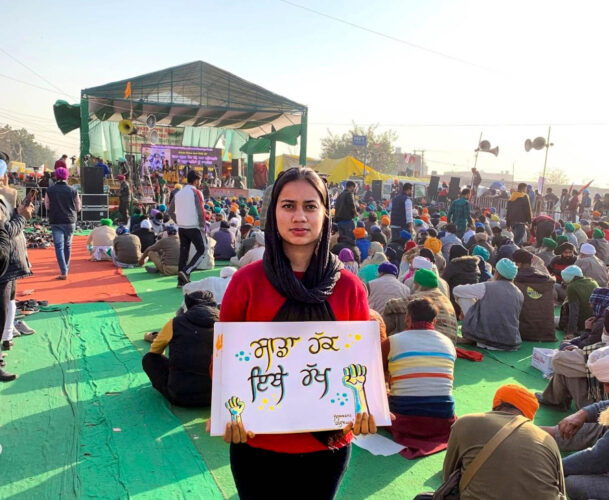
Japleen Kaur is a 22 year student with a graduate degree in psychology from the University of Delhi. She is currently pursuing higher education. Japleen is an amateur photographer and freelance writer.

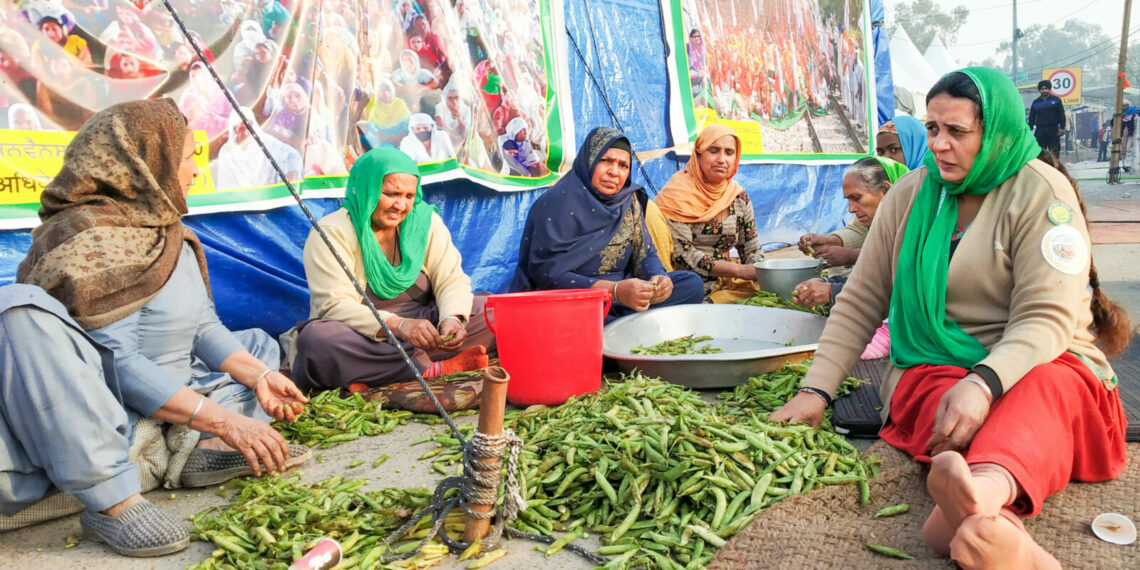
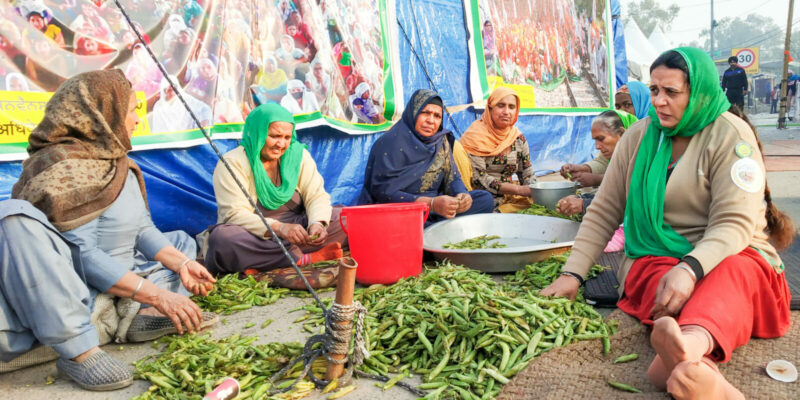
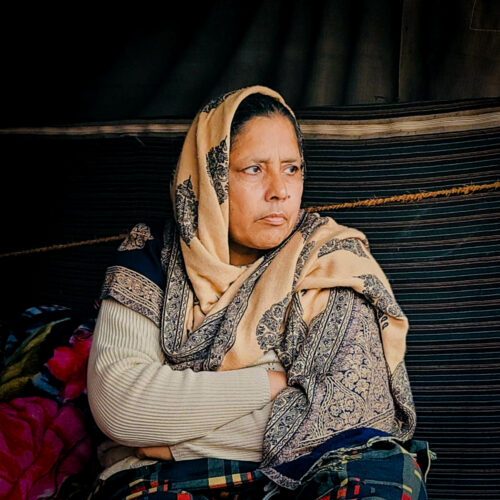
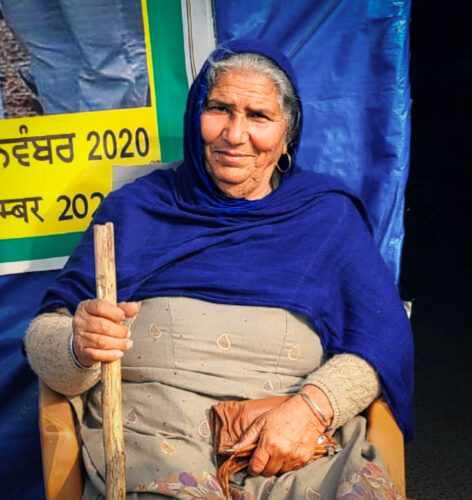
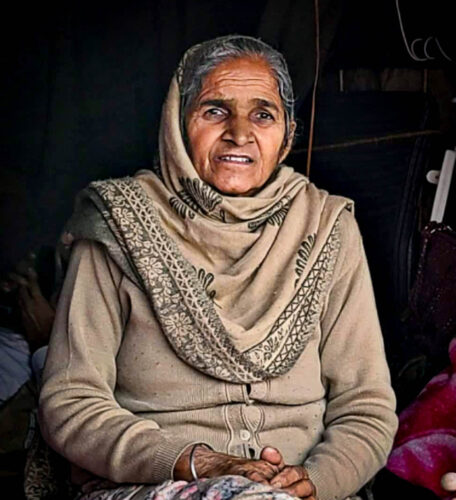
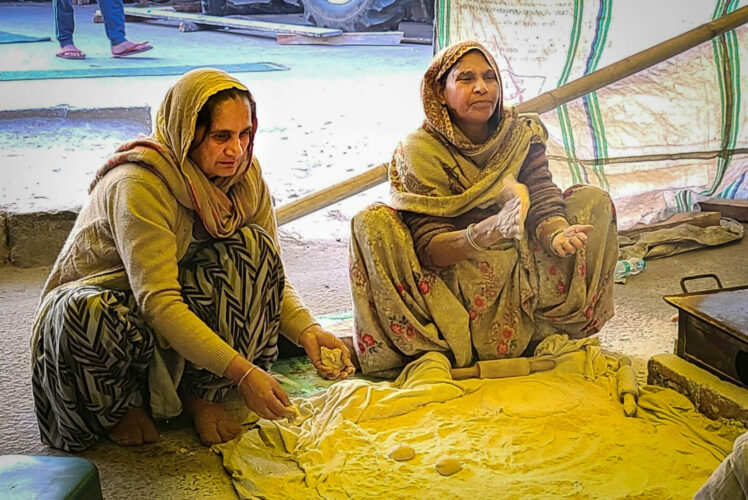
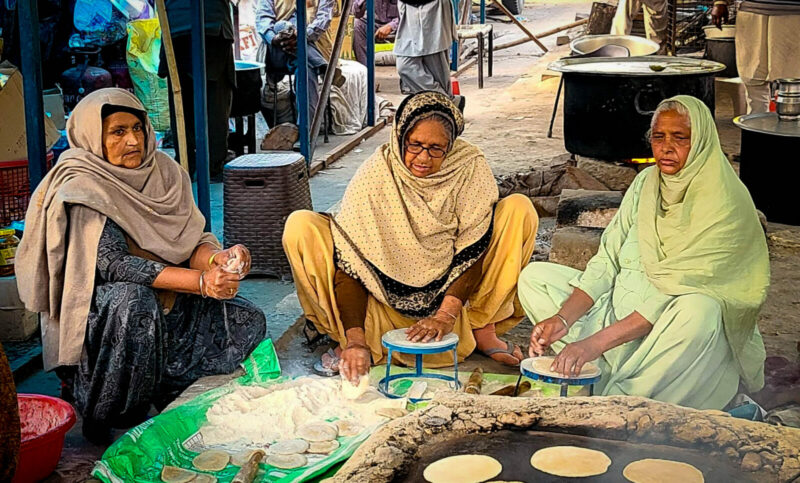
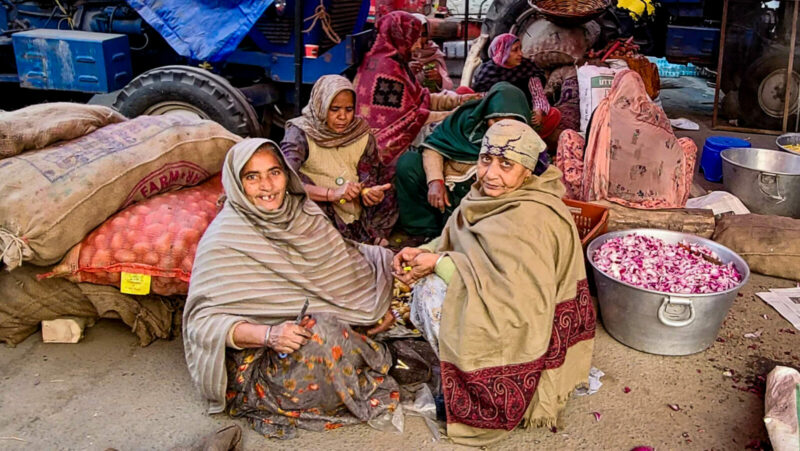
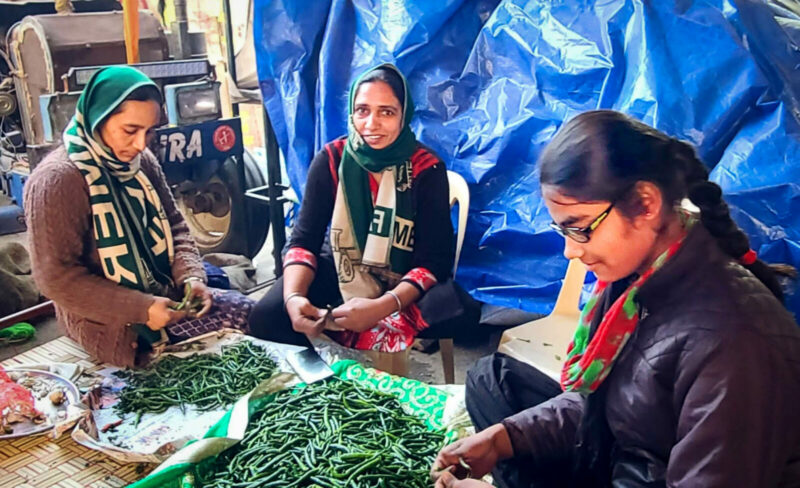
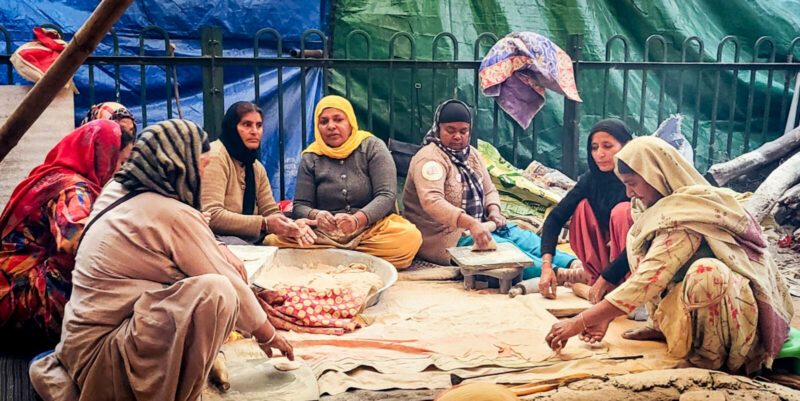

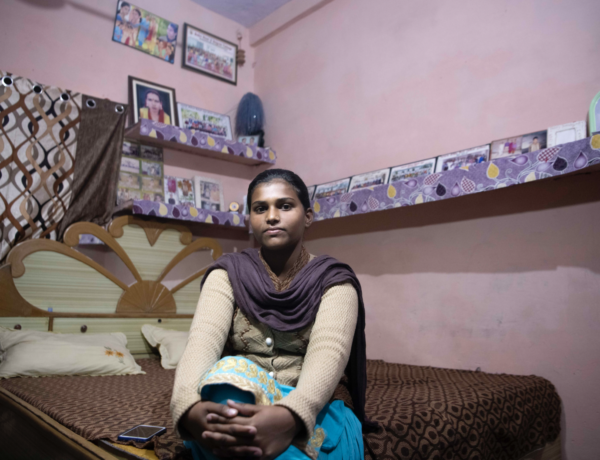

1 Comment
Anonymous
01/29/2021 at 4:14 amMind blowing Japleen, wonderfully written first hand account of your visits, truly Punjab writes the history.
All That the delhi sarkar was to do is to repeal the laws and make its junta happy. They aren’t asking for any benifits except to legalise and enforcement of M.S. P.
It will be in the interest of the government to oblige. Live & let Live policy must be applied.
Amardeep singh Rekhi- Mumbai
9820821437